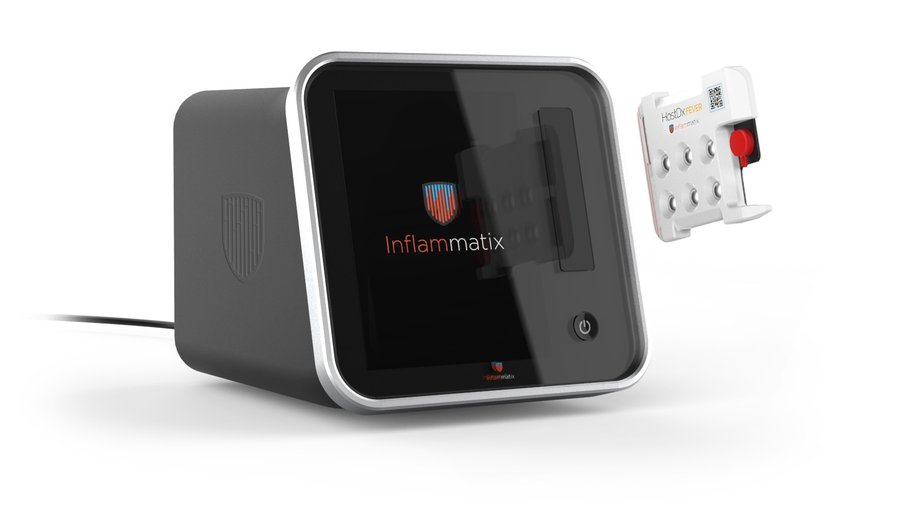In the land of billion-dollar valuations, nine-figure biotech IPOs and supersized Series A rounds, what good is a $6 million deal with a federal agency? A lot, says Dr. Tim Sweeney.
The money — from the U.S. Department of Health and Human Services' Biomedical Advanced Research and Development Authority, or BARDA — will help Inflammatix Inc. develop a test that could determine in 30 minutes or less if the source of a fever is viral or bacterial. That could not only accelerate diagnosis but also point doctors toward which antibiotics, if any, to use on patients, said Sweeney, the company's CEO.
Inflammatix already is working on using the system, called HostDx, in sepsis, a life-threatening condition caused by the body's reaction to a viral or bacterial infection.
The company plans to start a 1,000-patient sepsis clinical trial in first-quarter 2020 that could be used to win Food and Drug Administration clearance.
That study is one of 16 clinical trials enrolling or under analysis by the Burlingame company, which has about 30 employees and has raised an undisclosed amount over two funding rounds from the likes of Khosla Ventures, the Stanford StartX Fund, Northpond Ventures and Think Health.
The sepsis test uses a venous blood draw and the fever test a simple finger prick to draw blood that is then placed on different types of cartridges. Those plug into the same kind of reader, with the system using an algorithm built on data about the body's host immune response to various invaders.
In all, Inflammatix could receive around $60 million from BARDA for development of its finger-stick fever test, if it hits certain milestones over its five-year, cost-sharing contract.
"This money was about programmatic expansion," said Sweeney, who founded Inflammatix in 2016 with Jonathan Romanowsky and Purvesh Khatri. "Our plan was sepsis first and then HostDx Fever as a follow-on. With BARDA, though, we've started (that work) in parallel."

But the funding from BARDA isn't the only thing that Inflammatix gets out fo the relationship, Sweeney said. The agency has helped several companies through the FDA clearance process, and that experience could prove invaluable to Inflammatix as it seeks approvals in the United States and Europe.
The HostDx system — winner of the "Disruptive Technology Award" in September from the American Association for Clinical Chemistry, an organization made up of lab directors that would run the tests — could launch in Europe in the second half of 2021, followed by the United States.
But first Inflammatix must nail down the results of its clinical trials and fight through competition.It is among several companies in the Bay Area alone pursuing a fast point-of-care system for determining if a bacterial, viral or fungal invader has set off deployment of infection fighters that are part of the body's immune system.
Knowing which bad actor is responsible helps doctors are more likely to prescribe the right antibiotics — or none at all — while the health care community tries to decrease the use of those drugs to slow the advance of "super bugs" that are increasingly resistant to antibiotics.
"What we're trying to answer are some fundamental questions," Sweeney said. "The sepsis community is focused on infections and getting antibiotics into the right people quickly. The antimicrobial resistance community wants to reduce prescribing. Our test can rapidly adjudicate that."





